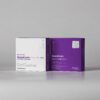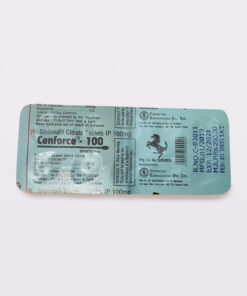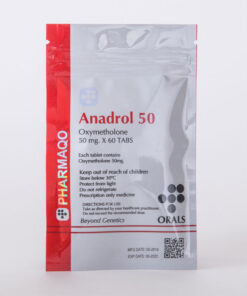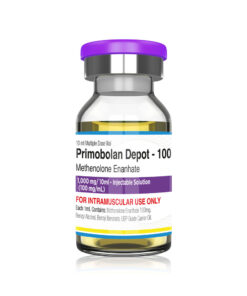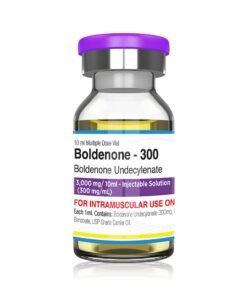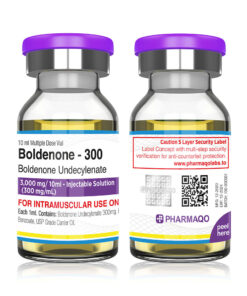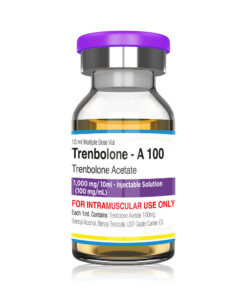10 x Pfizer Genotropin 36iu
£1,200.00 Original price was: £1,200.00.£1,079.99Current price is: £1,079.99.
Available on backorder
10 x Pfizer Genotropin 36iu Classification
Genotropin is classified as recombinant human growth hormone (r-hGH), also known as somatropin, supplied as a lyophilised powder with solvent for subcutaneous injection in various device formats and strengths, including 12mg/36IU per cartridge. In the UK and EU, Genotropin is a prescription-only medicine indicated for specific paediatric and adult endocrine conditions, not a general wellness or performance product.
- Active ingredient: Somatropin (recombinant DNA origin), bioidentical to endogenous human growth hormone.
- Pharmaceutical form: Two‑chamber cartridge or device (e.g., GoQuick), powder and solvent for solution for injection, subcutaneous administration.
- Strength relevant to this page: 12mg per cartridge equals 36 international units (IU), so a “10 x Pfizer Genotropin 36iu” pack typically refers to 10 cartridges at 36IU each.
- Licensing: Pfizer-branded, licensed indications for paediatric growth failure and adult GH deficiency, with strict prescribing criteria.
What is 10 x Pfizer Genotropin 36iu?
“10 x Pfizer Genotropin 36iu” refers to a multi-unit purchase of ten cartridges, each containing Genotropin 12mg (36IU) somatropin for subcutaneous injection, used as part of an ongoing treatment plan for approved medical indications. The number of units is relevant for patients on long-term therapy, as GH replacement is typically administered daily or near-daily in divided weekly dosing under specialist supervision. Genotropin is used for growth hormone deficiency in adults, and for growth disorders in children such as GHD, Turner syndrome, being born small for gestational age with no catch-up growth, chronic renal insufficiency, Prader–Willi syndrome (with specific safety restrictions), and idiopathic short stature in some regions.
- Intended users: Adults diagnosed with GHD (childhood-onset or adult-onset), and children with defined growth disorders following specialist evaluation.
- Administration: Subcutaneous injection, typically divided into 6–7 injections per week.
- Therapy oversight: Initiation and monitoring by endocrinology or paediatric endocrinology specialists, including regular IGF‑1 monitoring and dose titration.
Recommended Dosage for Pfizer Genotropin 36iu
Dosing is highly individual and must be set by a clinician based on age, weight, clinical response, and IGF-1 levels. Never self-prescribe or self-titrate. Below are high-level ranges from official guidance.
- General schedule: Weekly dose divided into 6 or 7 subcutaneous injections; do not inject intravenously.
- Adults with GHD:
- Non‑weight‑based start: ~0.2mg/day (0.15–0.30mg/day), titrated every 1–2 months based on clinical response and IGF‑1, reducing if IGF‑1 exceeds age/sex norms or if adverse effects occur.
- Weight‑based start: ≤0.04mg/kg/week, may increase to ≤0.08mg/kg/week at 4–8 week intervals based on response and safety.
- Paediatric dosing (examples; clinician-directed):
- GHD: Generally 0.16–0.24mg/kg/week in divided daily doses.
- Other paediatric indications (e.g., SGA, Turner syndrome, PWS) follow indication‑specific ranges per specialist protocol and SmPC/label guidance.
- Treatment duration: For children, discontinue for short stature when epiphyses are fused; adults remain on replacement as clinically indicated with periodic reassessment.
How Does Pfizer Genotropin 36iu Work?
Somatropin binds to growth hormone receptors, stimulating hepatic and peripheral production of insulin‑like growth factor‑1 (IGF‑1), which mediates many anabolic and growth‑promoting effects. The GH/IGF‑1 axis supports longitudinal bone growth in children, maintains lean body mass, bone mineral density, and metabolic health parameters in adults with GHD when replaced to physiological levels.
- Mechanism highlights: Increased protein synthesis, lipolysis modulation, and bone/cartilage growth via IGF‑1 signalling.
- Therapeutic goal: Restore normal growth in children with approved indications; improve body composition, energy, and metabolic markers in adults with confirmed GHD under specialist care.
Benefits of Taking Pfizer Genotropin 36iu
When prescribed appropriately and monitored, Genotropin can deliver clinically meaningful benefits aligned with its licensed indications.
- Children: Improved linear growth velocity; potential normalisation toward target height in eligible conditions such as GHD, Turner syndrome, SGA without catch‑up growth, and others per label.
- Adults with GHD: Improvements in body composition (increased lean mass, reduced fat mass), bone metabolism, and quality‑of‑life metrics when dosed and monitored to physiologic IGF‑1 ranges.
- Device convenience: Pfizer devices (e.g., GoQuick) offer preloaded cartridges for consistent dosing and ease of use under training.
Benefits depend on adherence, correct dosing, and regular clinical monitoring (including IGF‑1 and safety labs) to balance efficacy with risk.
When should you take Pfizer Genotropin 36iu?
- Frequency: Daily or near-daily dosing,divide the weekly dose into 6–7 injections.
- Timing: Many programmes recommend consistent time-of-day administration; some clinicians prefer evening dosing to mimic physiological nocturnal GH secretion, though timing should follow specialist advice and patient practicality.
- Monitoring cadence: Dose adjustments every 1–2 months initially based on IGF‑1 and clinical response for adults; paediatric monitoring follows specialist protocols with growth charting and labs.
When Should You Not Take Pfizer Genotropin 36iu?
Genotropin has clear contraindications,do not use in these scenarios unless a specialist explicitly advises otherwise.
- Acute critical illness (e.g., after major surgery, multiple trauma, or acute respiratory failure).
- Prader–Willi syndrome in children who are severely obese, have a history of upper airway obstruction/sleep apnoea, or severe respiratory impairment due to reports of sudden death in such settings.
- Active malignancy; any prior malignancy should be inactive and fully treated before considering therapy; discontinue if recurrence occurs.
- Active proliferative or severe non‑proliferative diabetic retinopathy.
- Known hypersensitivity to somatropin or excipients (e.g., m‑cresol in some presentations).
What is the Mechanism of Pfizer Genotropin 36iu
Somatropin exerts effects through GH receptor activation, triggering JAK2/STAT signalling and inducing hepatic IGF‑1 production; IGF‑1 in turn promotes chondrocyte proliferation at growth plates, protein synthesis in muscle, and influences lipid and glucose metabolism. Physiologic replacement aims to reconstitute the GH‑IGF‑1 axis to normal ranges, rather than supraphysiologic stimulation, to achieve clinical benefits with minimal adverse effects.
Uses of Pfizer Genotropin 36iu
Licensed uses per official labelling include defined paediatric growth disorders and adult GH deficiency.
- Paediatric indications (examples per label):
- Growth failure due to GHD.
- Turner syndrome (growth failure).
- Children born small for gestational age without catch‑up growth by a defined age.
- Chronic renal insufficiency–related growth disturbance.
- Prader–Willi syndrome for body composition/growth with specific safety restrictions and careful screening.
- Idiopathic short stature (varies by region; follow local label).
- Adults: Replacement therapy in confirmed adult GHD (childhood‑onset or adult‑onset) after appropriate provocative testing and endocrinology assessment.
Always follow the UK label and specialist advice to confirm eligibility and local criteria.
Warnings and Precautions for Pfizer Genotropin 36iu
Genotropin carries important warnings that require careful monitoring.
- Increased mortality in acute critical illness: avoid pharmacologic GH in ICU‑level conditions post major surgery/trauma or acute respiratory failure.
- PWS in children: screen for obesity, airway obstruction, sleep apnoea, and respiratory impairment; sudden deaths reported in such contexts.
- Neoplasia risk management: ensure no active malignancy; monitor for recurrence; screen for pituitary tumours if clinically suspected.
- Glucose metabolism: risk of impaired glucose tolerance/diabetes; monitor blood glucose and adjust antidiabetic therapy as needed.
- Intracranial hypertension: watch for severe/persistent headache, visual changes, papilloedema,may need dose adjustment or interruption.
- Hypersensitivity: systemic reactions including anaphylaxis reported; stop and seek care if suspected.
- Fluid retention: oedema, arthralgia, carpal tunnel–type symptoms,often dose‑related and may require titration.
- Endocrine interplay: manage coexisting hypoadrenalism and hypothyroidism; GH can unmask/adversely affect these conditions requiring dose changes of steroids or levothyroxine.
- Paediatric risks: monitor for slipped capital femoral epiphysis, progression of scoliosis, otitis media and cardiovascular issues in Turner syndrome.
- Lipoatrophy: rotate injection sites to prevent local fat loss.
- Laboratory monitoring: IGF‑1 targeting to age/sex normal range; additional labs per indication.
Side Effects of Pfizer Genotropin 36iu
Side effects are typically dose‑related and may improve with titration; report persistent or severe effects to the prescriber.
- Common: Injection site reactions, rash, headaches, fluid retention (oedema), arthralgia, paresthesias; lipoatrophy if not rotating sites.
- Metabolic: Altered glucose tolerance, possible diabetes onset or worsened control in predisposed individuals.
- Neurological: Intracranial hypertension symptoms (severe headache, visual changes, nausea/vomiting), usually early in treatment.
- Paediatric: Slipped capital femoral epiphysis, scoliosis progression; specific risks in Turner syndrome (otitis media, cardiovascular monitoring).
- Hypersensitivity: Systemic reactions, anaphylaxis,seek urgent care.
Drug Interactions of Pfizer Genotropin 36iu
- Glucocorticoids: GH can inhibit 11β‑HSD1, potentially necessitating glucocorticoid replacement initiation or dose increases in hypoadrenal patients; conversely, supraphysiologic glucocorticoids can blunt GH efficacy,requires careful endocrinology coordination.
- CYP450 substrates: GH may alter clearance of drugs metabolised by CYP450; monitor drugs with narrow therapeutic index.
- Oral oestrogens: May reduce IGF‑1 response; dosing adjustments sometimes required.
- Antidiabetic agents: Insulin/oral/injectable hypoglycaemics may need adjustment due to changes in insulin sensitivity.
Always disclose all medicines and supplements to the prescriber prior to starting Genotropin.
Storage for Pfizer Genotropin 36iu
- Cold chain: Follow Pfizer’s storage and handling instructions for the specific device/cartridge; typically refrigerated storage is required with temperature control and protection from light, and stability timelines after reconstitution vary by presentation.
- Do not freeze: Freezing can damage the protein; avoid temperature excursions.
- Device-specific instructions: Adhere to the device’s patient leaflet for in‑use shelf life, storage temperatures, and handling of the two‑chamber cartridge after reconstitution.
For precise storage durations and temperatures, always follow the leaflet for the exact Genotropin device/strength supplied.
Where to buy Pfizer Genotropin 36iu?
In the UK, Genotropin is a prescription-only medicine supplied via licensed pharmacies with a valid prescription. Buying from reputable, regulated sources ensures product authenticity, cold‑chain integrity, and access to pharmacist support.
- NHS/private pathway: After specialist diagnosis, prescriptions are fulfilled through NHS hospital pharmacies or registered private pharmacies.
- Avoid grey-market listings: Third‑party marketplaces and overseas vendors cannot guarantee authenticity or storage compliance; counterfeit and mishandled hormones pose serious health risks.
- Buying Steroids UK: This site supports UK customers by signposting legitimate prescription routes and ensuring any supply is aligned with UK regulations and Pfizer’s product standards; orders require valid prescriptions and are processed through regulated pharmacy partners for safety and compliance.
Frequently Asked Questions
- Is Genotropin 36iu the same as 12mg?
Yes,36 international units correspond to 12mg of somatropin in the Pfizer Genotropin cartridge described; “10 x 36iu” typically means ten 12mg cartridges. - Can Genotropin be used for bodybuilding or anti‑ageing?
No,Genotropin is licensed for specific medical indications and requires prescription and monitoring; non‑medical use is unsafe and not supported by the product licence. - How often do I inject Genotropin?
The weekly dose is divided into 6 or 7 subcutaneous injections; the exact dose and timing are personalised by the prescriber. - How soon will I see results?
Children often show increased growth velocity in the first year if eligible; adults with GHD may see gradual improvements in body composition and well‑being as IGF‑1 normalises; timelines vary and require ongoing monitoring. - What if I miss a dose?
Follow the patient leaflet and prescriber’s advice; typically, do not double up,resume the usual schedule and inform the clinic if multiple doses are missed. - What labs are monitored?
IGF‑1 is central for dose titration; glucose parameters, thyroid function, adrenal status, and other tests are checked as clinically indicated. - Are there special cautions for diabetes or thyroid disorders?
Yes,GH can impact glucose tolerance; diabetes therapies may need adjustment, and untreated hypothyroidism can blunt GH efficacy, necessitating thyroid optimisation. - Can I use Genotropin if I have a history of cancer?
Genotropin is contraindicated in active malignancy, and prior cancers require careful evaluation; treatment must only proceed when inactive and fully treated, with vigilant monitoring. - What are the signs I should stop and call my doctor?
Severe headache or vision changes (possible intracranial hypertension), signs of hypersensitivity, significant swelling/tingling suggestive of severe fluid retention or carpal tunnel, worsening glucose control, breathing issues in PWS, or any alarming new symptoms,seek urgent advice. - Do I need injection training?
Yes,patients must receive training in reconstitution, device use, site rotation, needle safety, and cold‑chain handling before self‑administration.
Related products
Bulk Buy product deals
Bulk Buy product deals
Bulk Buy product deals
Bulk Buy product deals
Bulk Buy product deals
Bulk Buy product deals
Bulk Buy product deals
Bulk Buy product deals
